Ever feel like you’re suddenly “on fire” inside, your heart’s racing for no reason, or you’re losing weight without trying? Those could be the first whispers of an overactive thyroid. In the next few minutes I’ll walk you through the most common early signs, why catching them early matters, and what steps you can take right now. Think of it as a friendly coffee chat where we untangle the mystery together.
Why Early Detection Matters
Detecting hyperthyroidism before it flares up can feel a bit like spotting a small leak in a roof before the whole house gets soaked. The sooner you patch it, the less damage you’ll have to repair later. Untreated hyperthyroidism can lead to complications such as heart rhythm problems, bone loss, and—in rare cases—a thyroid storm, which is a medical emergency.
What “early” really means
“Early” refers to the first subtle symptoms that appear when thyroid hormone levels start to rise, often before a doctor’s diagnosis. These signs may be intermittent or mild, which is why many people dismiss them as stress or a bad night’s sleep.
Risks of ignoring the clues
If you let these clues slide, the condition can progress to full‑blown hyperthyroidism. That’s when you might experience severe weight loss, heart failure, or osteoporosis. Below is a quick risk matrix that shows how each early sign can evolve if left unchecked.
| Symptom | Low Risk (Early) | Medium Risk (Progression) | High Risk (Complication) |
|---|---|---|---|
| Heat intolerance | Occasional hot flashes | Persistent sweating, dehydration | Heat‑stroke, electrolyte imbalance |
| Palpitations | Brief flutter | Frequent tachycardia | Atrial fibrillation, heart failure |
| Weight loss | Minor size change | Rapid, unintentional loss | Muscle wasting, osteoporosis |
Common Early Symptoms
These are the signs that show up most often, according to the NHS and Mayo Clinic. Not every symptom will appear for every person, but if you notice a handful, it’s worth a chat with your doctor.
Heat intolerance & excess sweating
You might feel unusually hot even when the room is cool, or break out in a sweat after a short walk. Your body’s metabolism is revving up, generating extra heat.
Rapid or irregular heartbeat (palpitations)
Suddenly noticing your heart “pounding” while sitting still can be unsettling. Hyperthyroidism pushes the sympathetic nervous system, making the heart beat faster.
Unexplained weight loss despite normal or increased appetite
Friends may comment on how your jeans are getting loose, yet you’re not on a diet. The thyroid hormone speeds up how quickly you burn calories.
Mood swings, anxiety, irritability
Feeling “on edge,” getting snappy over small things, or having trouble sleeping? Hormonal turbulence often masquerades as anxiety.
Fine tremor (hand shaking)
A subtle tremor in the hands—like the one you get when you’re nervous before a presentation—can be an early clue.
Frequent bowel movements or diarrhea
More trips to the bathroom than usual? Hyperthyroidism speeds up gastrointestinal motility.
Sleep disturbances
Finding it hard to fall asleep or waking up early and feeling restless? Hormone surges keep the brain alert.
Subtle goitre (neck swelling)
A slight fullness at the base of your neck that you’ve never noticed before may be your thyroid enlarging—often called a goitre.
Differentiating From Others
Many of these symptoms overlap with everyday stress, anxiety, or other medical issues. Here’s a quick cheat‑sheet to help you tell the difference.
Overlap with anxiety or menopause
Both anxiety and menopause can cause heat flashes and mood swings. What tips hyperthyroidism off the list is the combination of a racing heart plus weight loss without dieting, and the presence of a tremor.
When it’s likely thyroid‑related
- At least three of the early signs appear together.
- Symptoms persist for weeks rather than days.
- You notice a subtle neck swelling.
Comparison Chart
| Condition | Key Symptoms | Distinctive Feature |
|---|---|---|
| Hyperthyroidism | Heat intolerance, palpitations, weight loss, tremor | Elevated thyroid hormones on blood test |
| Anxiety | Rapid heartbeat, sweating, restlessness | Triggers linked to stress, no weight loss |
| IBS | Diarrhea, abdominal cramping | Relief after bowel movement, no systemic signs |
| Anemia | Fatigue, pallor | Low hemoglobin, no heat intolerance |
Getting a Thyroid Function Test
If you’ve ticked the red‑flag checklist—say, you’ve noticed three or more of the early signs—book a thyroid function test. It’s a simple blood draw that measures TSH (thyroid‑stimulating hormone) and free T4, the two main markers doctors use.
What the numbers mean
- Low TSH + High Free T4: Classic hyperthyroidism.
- Low TSH + Normal Free T4: Early or mild disease—might need repeat testing.
- Normal TSH + High Free T4: Possible laboratory anomaly; repeat test advisable.
The NHS explains that a single TSH test can often confirm an overactive thyroid, and additional panels can pinpoint the exact cause.Read more
Underlying Causes Explained
Knowing what’s driving the hormone surge helps you understand treatment options.
Graves’ disease
The most common culprit, an autoimmune condition where antibodies stimulate the thyroid to produce excess hormone. It often shows up in younger women, but anyone can be affected.
Toxic nodules or multinodular goitre
In older adults, single “hot” nodules or several nodules can secrete too much hormone. These are usually benign but can be identified with a thyroid scan.
Thyroiditis
Inflammation of the gland—sometimes after a viral infection—can cause a temporary burst of hormone release. Symptoms often subside after a few months.
Age‑Related Cause Table
| Age Group | Most Common Cause |
|---|---|
| 20‑40 years (women) | Graves’ disease |
| 40‑60 years | Toxic nodules / multinodular goitre |
| 60+ years | Thyroiditis or nodular disease |
Managing Early Signs
You don’t have to wait for a prescription to feel better. Small lifestyle tweaks can ease many of the early symptoms while you await a diagnosis.
Stress‑reduction hacks
- Practice 5‑minute deep‑breathing sessions twice a day.
- Take short walks outdoors—fresh air helps balance the nervous system.
- Limit caffeine; it can worsen palpitations.
Nutrition for a calm thyroid
While iodine is essential for thyroid health, too much can aggravate an already overactive gland. Aim for a balanced diet with plenty of leafy greens, lean protein, and calcium‑rich foods to protect bone health.
When medication helps
If blood work confirms hyperthyroidism, doctors may prescribe beta‑blockers to tame the rapid heartbeat and tremor, or antithyroid drugs (like methimazole) to slow hormone production. These medications are most effective when paired with lifestyle measures.
Trusted Resources & Help
Finding reliable information can feel overwhelming. Below are some reputable sources where you can learn more or locate a specialist.
- American Thyroid Association (ATA) – Patient brochures and physician locator.
- EndocrineWeb – Easy‑to‑read guides and community forums.
- NHS – UK’s trusted health service with symptom checker.
- Local support groups (e.g., Thyroid UK, HealthMatch) – Share experiences and get encouragement.
Conclusion
Spotting the early signs of hyperthyroidism—heat intolerance, rapid heartbeat, subtle weight loss, mood swings, tremor, and increased bathroom trips—gives you the power to act before the condition escalates. A quick thyroid function test, paired with honest conversation with your healthcare provider, can confirm the diagnosis and set you on the right treatment path.
Remember, you’re not alone. Many have walked this road and found relief once they took that first step toward testing and support. If any of the symptoms resonated with you, why not jot them down and schedule an appointment? And if you’ve already navigated hyperthyroidism, share your story in the comments—your experience could be the friendly nudge someone else needs.



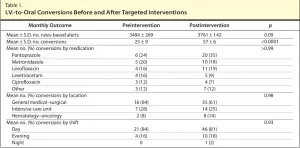
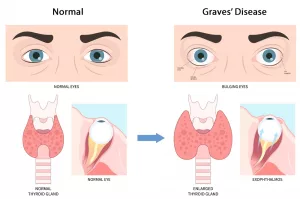



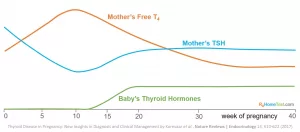
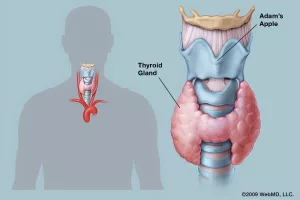


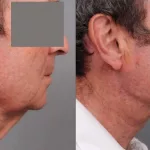












Leave a Reply
You must be logged in to post a comment.